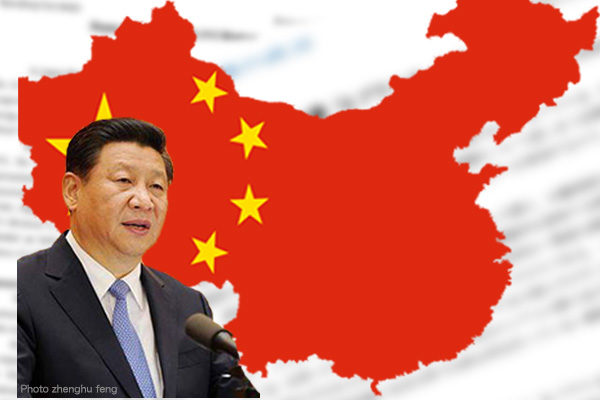On September 3, a military parade commemorating the 80th anniversary of the “victory of the Chinese People’s War of Resistance against Japanese Aggression and the World Anti-Fascist War” will take place at Tiananmen Square in Beijing.
Dignitaries from various countries and international organizations are invited to this military parade. The attendees at the 70th anniversary military parade 10 years ago included Russian President Vladimir Putin, then South Korean President Park Geun Hye, and then U.N. Secretary-General Ban Ki Moon. Western countries sent foreign ministers and diplomats in China to the parade.
The Chinese Foreign Ministry has not disclosed the list of foreign dignitaries invited to this year’s military parade. Given that the Shanghai Cooperation Organization plans to hold a summit in Tianjin, China, on August 31 and September 1, the leaders of SCO member countries such as Putin and Indian Prime Minister Narendra Modi may attend the parade this year. In addition, other foreign attendees to the parade may include leaders from Asian and African countries involved in China’s “Belt and Road” initiative.
Promoting the legitimacy of the Communist Party regime
China had held a military parade only on October 1, the national day of the People’s Republic of China. In 2014 after Xi Jinping took office as president in 2013, China designated September 3 as the “Victory Day of the Chinese People’s War of Resistance against Japanese Aggression” in law, stating that the war was a just war in which the Chinese people resisted the aggression of Japanese imperialism, forming an integral part of global struggle against fascism. In 2015 to commemorate the 70th anniversary of the Victory Day, China conducted a military parade on September 3 for the first time, inviting foreign dignitaries.
One purpose of the September 3 military parade is to promote the legitimacy of the Chinese Communist Party. It is a well-known fact that the Kuomintang army took in fighting against Japanese forces in the Sino-Japanese War. In order to assert the legitimacy of the CCP’s current rule over China, however, the CCP must be viewed as having won against Japan in the war before founding the People’s Republic of China. Therefore, Beijing uses the parade of the People’s Liberation Army, the CCP’s army, to proclaim to the world that the CCP achieved the victory against Japan.
Another purpose of the parade may be to enhance Xi’s own authority. By emphasizing cooperation with the “World Anti-Fascist War,” Bejing is trying to persuade Western countries to attend the parade. In the current situation that features the deterioration of the Chinese economy and abnormal personnel changes within the CCP regime, the higher the number and ranks of foreign dignitaries attending the parade, the more Xi’s authority as a leader recognized by the world will be. Furthermore, the planned parade indicates Beijing’s intention to isolate Taiwan from the international community.
Attendance endorses status quo change by force
Just like at the 70th anniversary parade, Putin is expected to stand next to Xi and observe the military parade once again. China has publicly declared its intention to strengthen cooperation with Russia, even after Russia’s aggression against Ukraine. Foreign dignitaries attending such a Chinese event alongside the leaders of China and Russia may be seen as endorsing their unilateral changes to the status quo by force. Countries around the world should resolutely boycott the military parade to send a clear message of “no” to China and Russia.
On the occasion of the 70th anniversary military parade, the Japanese government reportedly informed the U.N. Secretariat via Japan’s U.N. delegation that Ban’s attendance would raise concerns about his neutrality. Japan should once again take pride in its achievement of walking the path of peace for 80 years since the end of World War II, and should convey this message even more strongly to all countries and international organizations.
Maki Nakagawa is a researcher at the Japan Institute for National Fundamentals and a former commander of the Basic Intelligence Unit, Japan Ground Self-Defense Force.


